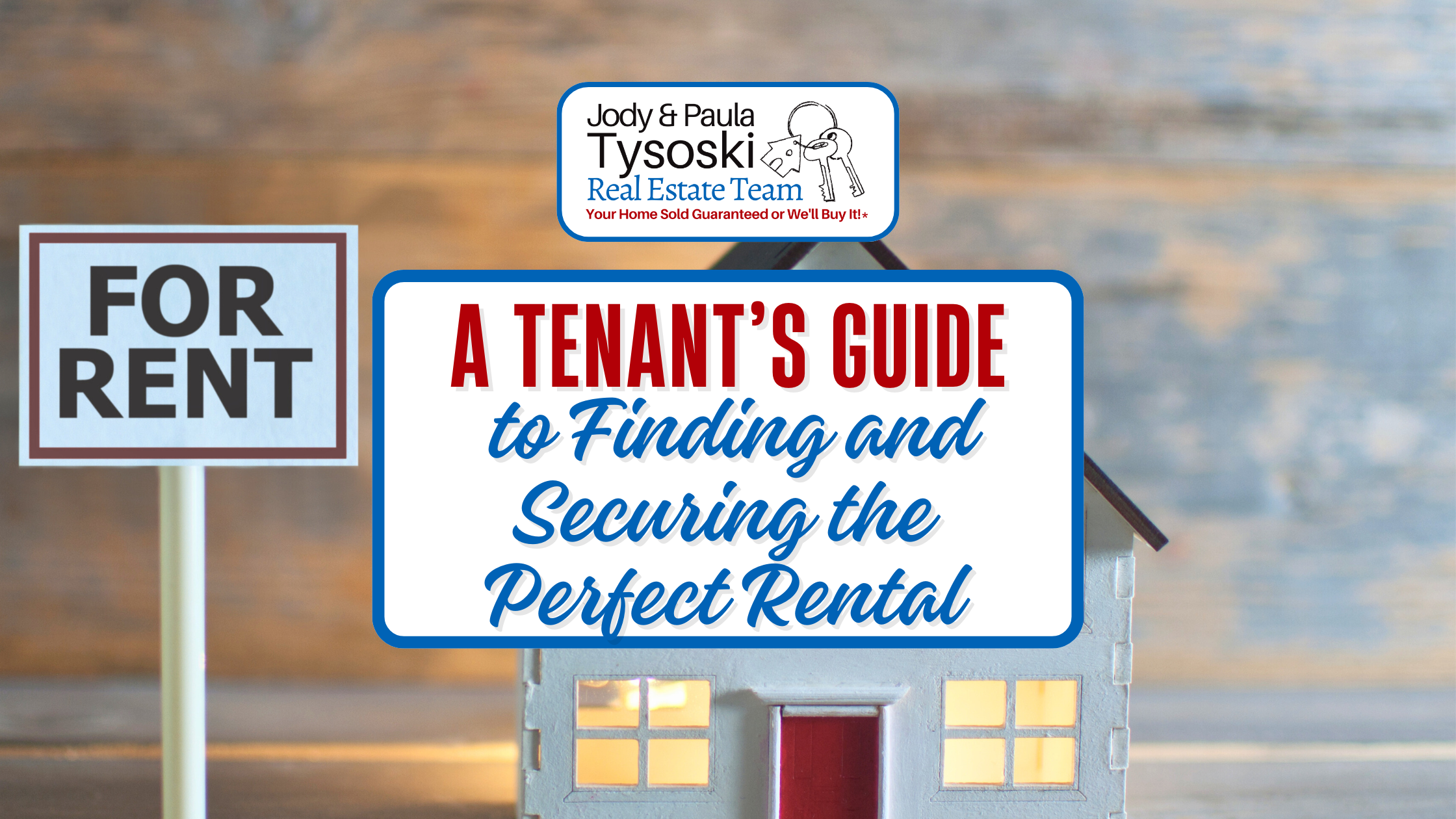
Renting a home is an exciting step, but in today’s competitive market, it can also feel overwhelming. This guide is here to simplify the process and provide you with practical tips to help you navigate every stage—from preparing your application to understanding your rights as a tenant. Whether you’re applying for your first rental or looking to improve your chances in a tight market, this booklet offers the information you need to feel prepared and confident. Armed with the right knowledge, you’ll be better equipped to find a rental that suits your needs and build a positive relationship with your landlord. Let’s get started on securing your next home!

Recent pay stubs or proof of income
Bank statements
Reference letters from previous landlords or employers
Government-issued ID
Credit report (some landlords prefer this to avoid additional checks)
A completed rental application form (if applicable)
In some cases, with long-term leases or in areas with multiple rental options, there may be room for negotiation. Landlords may consider lower rent, a reduced deposit, or adjusted terms if you can present strong financial stability, offer to sign a longer lease, or have an exceptional rental history. They might also see an offer for a higher rent as a reason o choose you over competing offers.
Research completed leases in your area to see what homes are going for and to see if the owner is asking a reasonable comparable price to similar rentals in the area.
It’s ultimately up to you if you accept the price, negotiate a different price or move on to another home.
How much should I budget for rent and living expenses?
A general guideline is to keep housing costs (rent and utilities) below 30% of your monthly income. Remember to factor in additional expenses like transportation, groceries, insurance, and savings to determine if the rent is sustainable. Creating a budget can help clarify what’s affordable and prevent financial strain.
Most landlords look for tenants whose gross monthly income is at least 2.5 to 3 times the monthly rent. This helps ensure the tenant can comfortably cover rent while meeting other financial obligations. Tenants should consider providing proof of consistent income, such as recent pay stubs or employment letters, to strengthen their application.
Landlords generally look for credit scores of 600 or higher, but requirements vary. A higher score can make a tenant stand out in a competitive market. For tenants with lower credit scores, it can help to provide explanations for any past financial difficulties or offer a co-signer or larger deposit if the landlord allows it.
Move-in costs typically include the first and last month’s rent, and sometimes an application or processing fee. For properties where a realtor assists, there may be additional fees. Estimating three times the monthly rent as an initial budget can be a good guideline.
If you’re a first-time renter, consider offering a co-signer, especially if your credit or income history is limited. Additionally, strong references from employers or a personal statement demonstrating responsibility and stability can help reassure landlords.
Before signing, make sure you understand:
The lease duration and terms for renewal.
Any maintenance responsibilities (who handles repairs, yard care, etc.).
Rules around pets, visitors, and noise.
Utilities and other expenses not included in the rent.
Terms around deposits and what would lead to withholding any part of it.
Consulting with a realtor can be helpful if the lease has complex clauses.
In competitive markets, good listings don’t last long. If you find a rental you like, have your documentation ready and consider being flexible with move-in dates to improve your chances.

Understanding tenant rights in Ontario, outlined in the Residential Tenancies Act (RTA), is crucial. This law covers aspects like rent increases, maintenance standards, and fair treatment, helping you to identify red flags and protect yourself in rental agreements.
Beyond the rent amount, there may be extra fees like utilities, parking, internet, or maintenance. Getting a full breakdown of these costs can prevent surprises and help you budget for monthly expenses.
Visit the area surrounding the rental to ensure it aligns with your lifestyle. Check for amenities like public transit, grocery stores, and schools. Consider visiting at different times to observe noise levels and safety.
In Ontario, landlords are required to use the Ontario Standard Lease, a form that offers protections and clearly defines terms. Review your lease carefully, and confirm it reflects what you agreed upon without any unusual clauses.
Clarify who handles repairs and what procedures to follow in emergencies. Know which maintenance tasks fall to the landlord and which may be your responsibility as a tenant.
In Ontario, landlords can only increase rent once every 12 months, with 90 days' written notice, and usually within a government-specified limit. Properties built after 2018 may be exempt from these caps, so double-check this when signing.
If you’re unsure of your long-term plans, ask about month-to-month options or shorter leases. This flexibility can be advantageous if your situation changes.
Before signing, check the condition of the property and document any existing damage. Take photos and note any repairs you request to prevent disputes about pre-existing issues when moving out.
Clear, professional communication with your landlord can foster a positive relationship, making it easier to address lease terms or maintenance needs later.
Renters’ insurance is recommended, and some landlords may require it. This covers personal belongings in case of fire, theft, or damage and includes liability if someone is injured in your rental space.
Ask about lease renewal terms and potential rent adjustments. For longer leases, some landlords might offer incentives, so it’s worth inquiring if you’re planning a long-term stay.
Be wary of landlords who request money before a viewing, communicate only via email, or list prices that seem too good to be true. Meet the landlord to view the home in person before transferring any funds.
If renting in a multi-unit building, inquire about shared amenities and any specific rules regarding noise, guests, or parking, to avoid unexpected restrictions.
Understand the required notice period and cleaning expectations to ensure you receive your full security deposit. Leaving the property in good condition can also help if you need a reference in the future.
To protect your security deposit, document the condition of the property with photos and notes at both move-in and move-out. Address any issues early with the landlord to avoid misunderstandings.
It’s illegal for landlords to discriminate based on characteristics like race, gender, disability, or income source. If you suspect discrimination consider filing a complaint with the Human Rights Tribunal of Ontario.
If you need to break a lease early, be aware it could result in penalties. Review your lease’s early termination policy, and if possible, negotiate terms with your landlord or find a replacement tenant. Consulting a realtor or legal expert can be beneficial if you’re navigating this for the first time.
These steps and protections can empower tenants to make informed decisions, approach rentals with confidence, and foster a positive renting experience.

Most landlords look for tenants whose gross monthly income is at least 2.5 to 3 times the monthly rent. This helps ensure the tenant can comfortably cover rent while meeting other financial obligations. Tenants should consider providing proof of consistent income, such as recent pay stubs or employment letters, to strengthen their application.
Landlords generally look for credit scores of 600 or higher, but requirements vary. A higher score can make a tenant stand out in a competitive market. For tenants with lower credit scores, it can help to provide explanations for any past financial difficulties or offer a co-signer or larger deposit if the landlord allows it.
Here’s a list of legitimate reasons a landlord can legally reject a rental application. Keep in mind that these reasons must comply with Ontario’s Human Rights Code and the Residential Tenancies Act, which prevent discrimination based on protected grounds (e.g., race, religion, disability, family status).
There are several legitimate reasons a Landlord can reject your application, tenants need to remember that Landlords are also making sure they can cover the cost of the dwelling and make an income.
Landlords can evaluate whether a tenant’s income is high enough to cover the monthly rent and other financial obligations. If the applicant’s income is too low, the landlord may reject the application. Poor Credit History
A low credit score or significant negative marks on the credit report, such as late payments, defaults, or high debt, can indicate a higher risk of missed rent payments, which landlords may consider a valid reason to decline.
If an applicant provides incomplete or false information, the landlord can reject the application. This includes inaccurate employment details, incorrect rental history, or missing necessary documents.
If previous landlords provide unfavorable references, such as reports of property damage, disruptive behavior, or late rent payments, the landlord may use this as a basis for rejection.
If a landlord cannot verify employment or income (e.g., through pay stubs, tax returns, or an employment letter), they may reject the application due to concerns about the tenant’s ability to pay rent.
Applicants with little or no rental history, frequent moves, or short rental tenures might be seen as a higher risk. Landlords often look for tenants with a stable rental history.
Landlords can deny applications if the number of tenants exceeds the legal occupancy limits for the rental unit (usually based on the unit’s size or city guidelines).
A previous eviction on the applicant’s record can be grounds for rejection, as it may suggest issues with rent payment or adherence to lease terms.
If the applicant is rude, uncooperative, or exhibits concerning behavior during the application process or viewing, a landlord may see this as an indicator of future issues.
Landlords may require specific documents, such as identification, proof of income, or references. If an applicant cannot provide these, the landlord can deny the application.
In Ontario, landlords can ask for the first and last month’s rent as a deposit. If the applicant cannot pay this deposit, the landlord may reject the application.
While Ontario landlords can’t deny tenants for having pets. These reasons are legitimate as long as they don’t involve discrimination against protected characteristics under the Human Rights Code. A transparent application process that includes clear criteria and open communication can help both landlords and tenants have a positive experience.

Writing a personal letter can be a powerful way to distinguish yourself, especially in competitive rental markets. This letter should provide a brief, positive overview of who you are and why you’re interested in the property. Start by sharing a little about your background, your lifestyle, and why this particular rental is a great fit for you. Highlight qualities like steady employment or consistent income, your respect for maintaining a property well, and any intentions to stay long-term if applicable.
If you have pets, mention them briefly, emphasizing their good behavior or steps you’re taking to ensure they don’t cause damage to the home. For instance, share how you’ve trained your pet or steps you’ll take to maintain the home, such as regular cleaning. This transparency can ease any concerns the landlord may have about renting to a pet owner.
To stand out in a competitive market, it’s essential to make your application as strong as possible from the start. First, ensure that all your documents are complete, up-to-date, and accurate. Missing or outdated documents can delay the process and potentially hurt your chances. Include recent pay stubs, bank statements, a credit report, and your rental history if available.
Including a letter of recommendation from a past landlord or employer is another way to show reliability and character. These references add credibility, particularly if they speak to your qualities as a respectful, responsible tenant.
Finally, flexibility can be a valuable asset. If you can offer flexibility with the move-in date, it may appeal to landlords who are trying to align lease terms or fill the property quickly. Demonstrating reliability, organization, and enthusiasm for the property can make you a top choice in a competitive rental market.
Approach a rental application interview much like a job interview. Dress professionally, arrive on time, and bring all the necessary documentation. Be ready to discuss your income, employment history, credit score, and rental background. Landlords want to feel confident about your ability to make timely payments and care for the property, so highlight your financial stability and rental track record.
If there are unique aspects to your application—such as recent credit challenges or gaps in rental history—be open and transparent. Addressing these situations upfront shows accountability and builds trust with the landlord. Explain any mitigating factors, such as steps you’ve taken to improve your financial situation, or provide a plan for how you’ll manage payments reliably moving forward. Demonstrating honesty and preparedness in the interview process can leave a lasting positive impression.

Navigating the rental market can be challenging, and there are key situations where reaching out to a realtor can make all the difference.
If you’re having trouble finding suitable properties on your own, contacting a realtor can provide access to listings that aren’t publicly advertised. Realtors often have exclusive connections that give them insight into available properties, helping you find options you may otherwise miss.
Relocating to a new area is another reason to consider working with a realtor. They can offer valuable local expertise on neighborhoods, commute times, and price trends, ensuring you make a well-informed choice. Additionally, if you have specific needs—like pet-friendly units or accessibility features—a realtor can quickly narrow down options to match your criteria.
Realtors can also guide you through lease terms and negotiations. If you’re unfamiliar with rental agreements, they’ll help you understand key terms, avoid potential pitfalls, and ensure your rights as a tenant are respected.
While realtors can make the process easier, it’s important to consider potential fees. In some cases, the landlord covers the realtor’s commission, but not always. If you’re interested in a property not represented by a realtor, you might need to cover this cost yourself, so discuss any fees upfront.
Ensure the realtor you choose has experience in the rental market, as some focus primarily on property sales. Realtors familiar with rentals are better suited to help you navigate the unique aspects of finding and securing a rental.
In a competitive market, working with a realtor offers distinct advantages. Realtors often have access to off-market properties and can save you time by focusing only on listings that meet your criteria. They also provide assistance with paperwork, guiding you through lease agreements and local regulations.
Realtors offer insights into market trends, rent prices, and neighborhood dynamics, empowering you to make confident decisions. By working with a realtor, you gain a valuable partner who can simplify the rental process and improve your chances of finding the perfect home.
While realtors can be extremely helpful, there are situations where handling the rental search on your own may be worth considering. For instance, if you’re looking at homes not listed by a realtor, you might need to cover the realtor’s fee yourself, as the landlord may not cover it. In these cases, be prepared to handle the search, paperwork, and negotiations on your own, and make sure you have all required documents and research ready to streamline the process.
Even with this consideration, working with a realtor can be invaluable for many tenants, offering access to exclusive listings, market insights, and professional support throughout the rental process.

Navigating the rental market with limited income or credit challenges can be difficult, but there are effective ways to strengthen your application and present yourself as a reliable tenant.
If you’re receiving steady income from the Ontario Disability Support Program (ODSP) or other government benefits, present recent statements to demonstrate stability. If family support is helping with rent, including proof of this can also reassure landlords that rent will be paid consistently.
A co-signer with a stronger financial profile can greatly strengthen your application, as they commit to covering rent if you’re unable to. Choose someone with a stable income and decent credit, and ensure they understand their responsibilities fully.
Write an honest, concise letter explaining any financial challenges and providing context, such as medical expenses or a recent setback. If you have a record of making regular payments on bills or smaller loans, highlight this as proof of your reliability.
If you have a positive history with previous landlords, a letter of recommendation can be invaluable. Even references from neighbors who can vouch for your good character can help, especially if they can speak to your responsibility and respect for the property.
In Ontario, human rights laws protect tenants from discrimination based on income source or disability. Mentioning ODSP as a stable income source, and noting this legal protection, can encourage landlords to consider your application fairly.
Programs like Ontario’s Rent-Geared-to-Income (RGI) or affordable rentals through nonprofits can make housing more accessible if you’re on a limited income. These programs adjust rent to your income, providing a stable and affordable option.
Large property management firms tend to have stricter policies, while smaller or private landlords may be more flexible. Private landlords may be more open to working with applicants who can show stability and reliability, even if their credit isn’t perfect.
If you have savings or family support, consider offering a few extra months of rent upfront can reassure landlords of your commitment. In Ontario, landlords typically only accept first and last month’s rent, but showing willingness to prepay more may help secure the rental.
Show proof of your financial responsibility, such as consistent utility or phone payments, to demonstrate your ability to manage money effectively. Even if income is limited, evidence of timely payments can show that you prioritize your obligations.
A realtor may have access to listings not publicly advertised and can sometimes advocate on your behalf with landlords. Realtors also understand market trends and may connect you with landlords open to renting to those with unique financial situations.
Local tenant organizations and disability support groups often share resources on affordable housing and can connect you with landlords familiar with non-traditional financial backgrounds. Support networks can be a valuable resource in navigating the rental market.
Ontario landlords cannot discriminate based on income source, such as ODSP. If you suspect discrimination, document interactions and consider filing a complaint with the Human Rights Tribunal of Ontario to protect your rights.
By following these strategies and providing evidence of stability, financial responsibility, and honest communication, you can enhance your application and increase your chances of securing a rental, even with financial constraints.
Finding and securing the right rental can be challenging, but with preparation, awareness, and a clear understanding of your rights, you can navigate the rental process with confidence. Whether you’re new to renting or simply seeking guidance in a competitive market, taking these steps will help you make informed decisions, protect your interests, and create a positive relationship with your landlord. Remember that your needs and rights matter—so stay proactive, ask questions, and use this guide as a resource along the way. Wishing you success and satisfaction in your next home!
Please Feel Free to Reach Out with any Questions!